Sarrera gisa, ikus Warren Mosler-en kreditu kontrola (11)
Segida:
Credit check (in Durable goods orders, Vehicle sales, Credit check1)
With each data release it seems more likely to me that the deceleration in the growth of borrowing from the banks is reflecting a drop in aggregate demand:
Growth of C and I loans has been near 0 since the election:
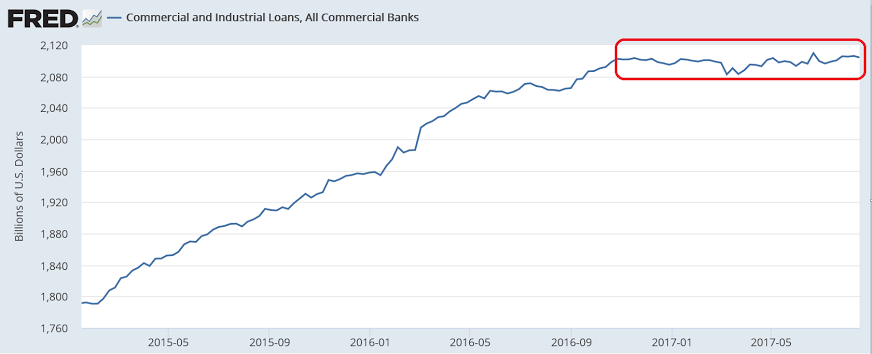
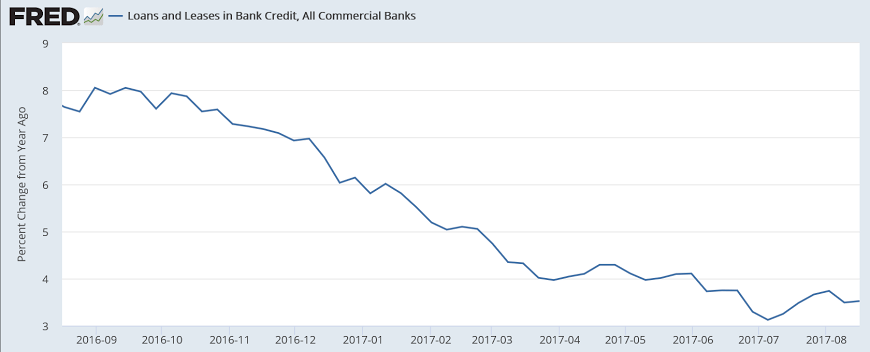
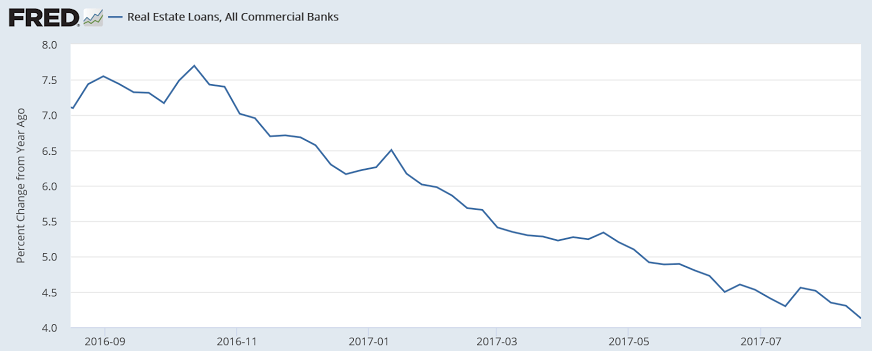
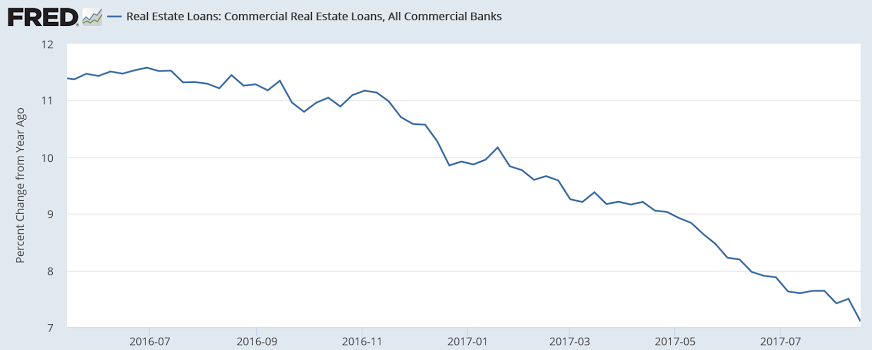
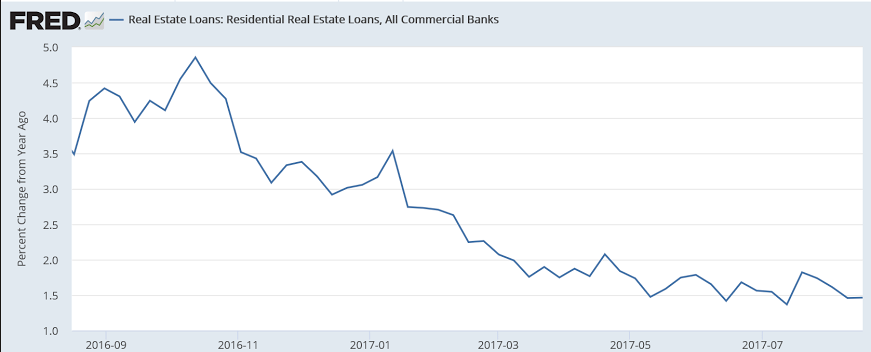
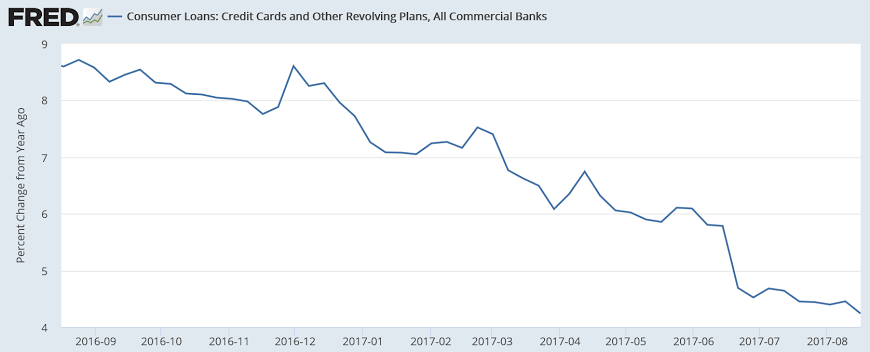
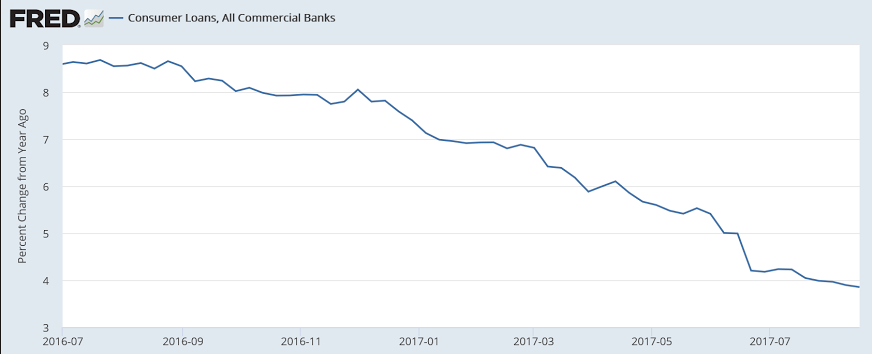
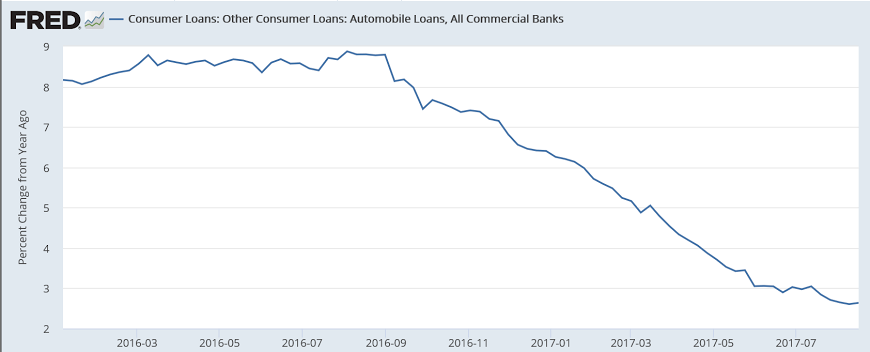
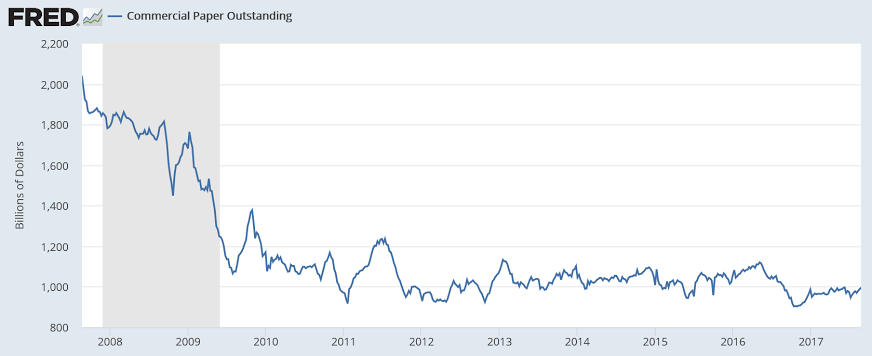
Loans create deposits, so here it is from a segment of the deposit side. M2 includes M1 which is directly affected by the size of the Fed’s portfolio and QE, however those variables have been largely unchanged for the time period of this chart:
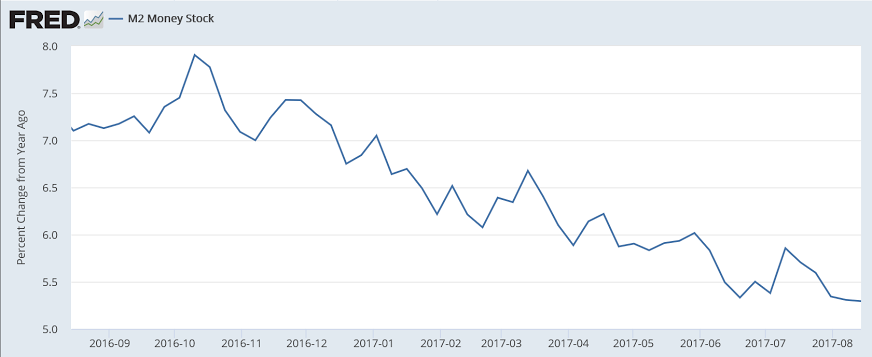





joseba says:
Warren Mosler-en kreditu kontrola (13)
Segida:
Credit check (in Credit check, Expectations vs spending, Inflation, Comments on Fed policy)
(http://moslereconomics.com/2017/10/02/credit-check-expectations-vs-spending-inflation-comments-fed-policy/)
You may be hearing about ‘spike’ in lending last week, so I’ll try to give you some perspective using commercial and industrial lending charts before just showing year over year changes (…)
joseba says:
Warren Mosler-en kreditu kontrola (14)
Segida:
Credit check
(http://moslereconomics.com/2017/10/09/credit-check-33/)
Appears to be leveling off at much lower rates of growth than last year, as reflected by weaker than expected data releases and revisions (…)
joseba says:
Warren Mosler-en kreditu kontrola (15)
Segida:
Credit Check
(http://moslereconomics.com/2017/10/29/credit-check-34/)
Still getting worse
joseba says:
Warren Mosler-en kreditu kontrola (16)
Segida:
Credit check with macro comments
http://moslereconomics.com/2017/11/05/credit-check-macro-comments/
Bank credit growth continues to decelerate, to where historically, after revisions, the economy would already be in recession. Housing and vehicles look like they are already reporting negative growth, and personal income growth has decelerated to about 0% growth, with personal spending holding positive only because people are dipping into savings, which historically has always been followed by a reduction in spending:
Less borrowing to spend translates into less personal income growth:
Spending has been sustained only by dipping into savings, which is not sustainable and historically happens at he end of the cycle:
With this many jobs taken every month by people not considered to be in the labor force I suspect it’s not so easy to be counted as being in the labor force as it once was? And so there is quite a bit more slack than generally presumed?
Maybe people over 65 do want to work?
The participation rate for this segment didn’t drop in 2008 and continues to increase:
joseba says:
Warren Mosler-en kreditu kontrola (17)
Segida:
Credit check, Commercial real estate index, Unemployment, Margin debt
http://moslereconomics.com/2017/11/11/credit-check-commercial-real-estate-index-unemployment-margin-debt/
Still no sign of a rebound
joseba says:
Warren Mosler-en kreditu kontrola (18)
Segida:
Credit check
(http://moslereconomics.com/2017/12/10/credit-check-35/)
Something happened about the time of the Presidential election that caused a sudden deceleration of bank lending, which had already been decelerating since the collapse of oil capex.
And still no signs of a recovery here, as consumers seem to be instead dipping into savings to sustain consumption as personal income growth decelerates as well: